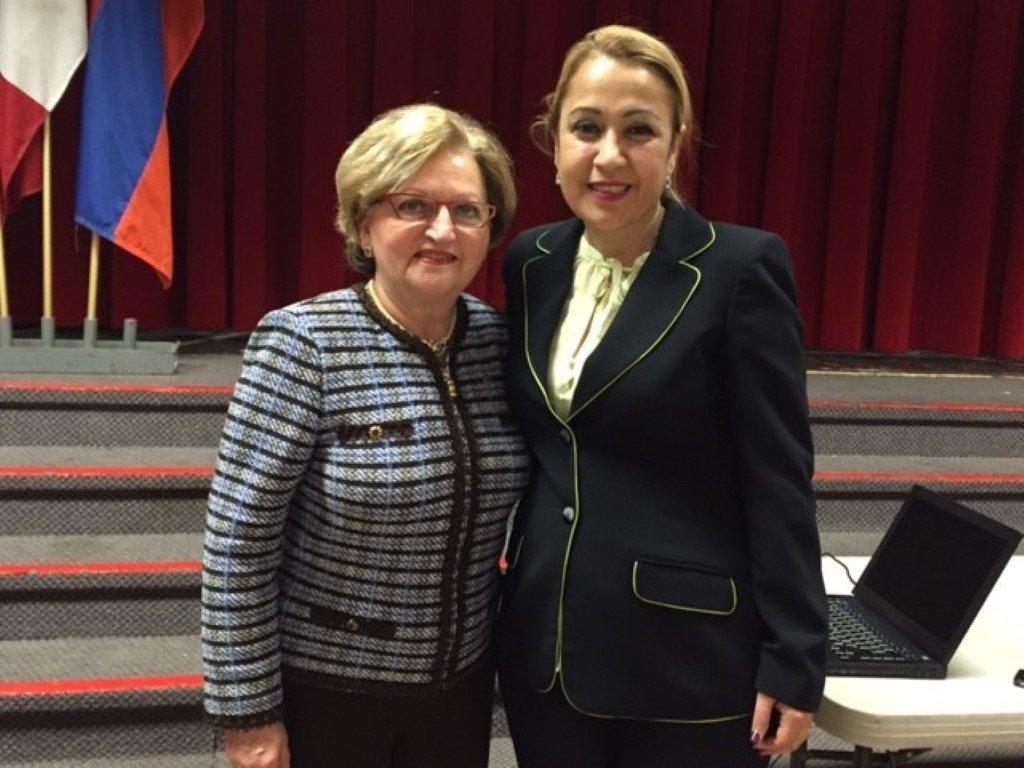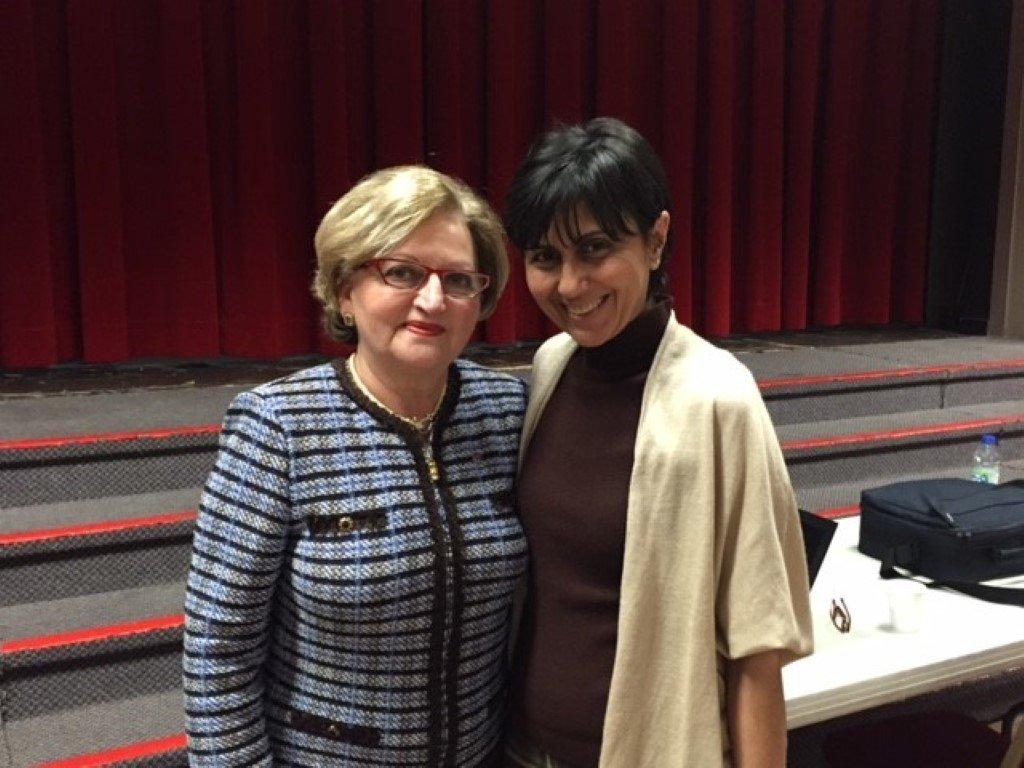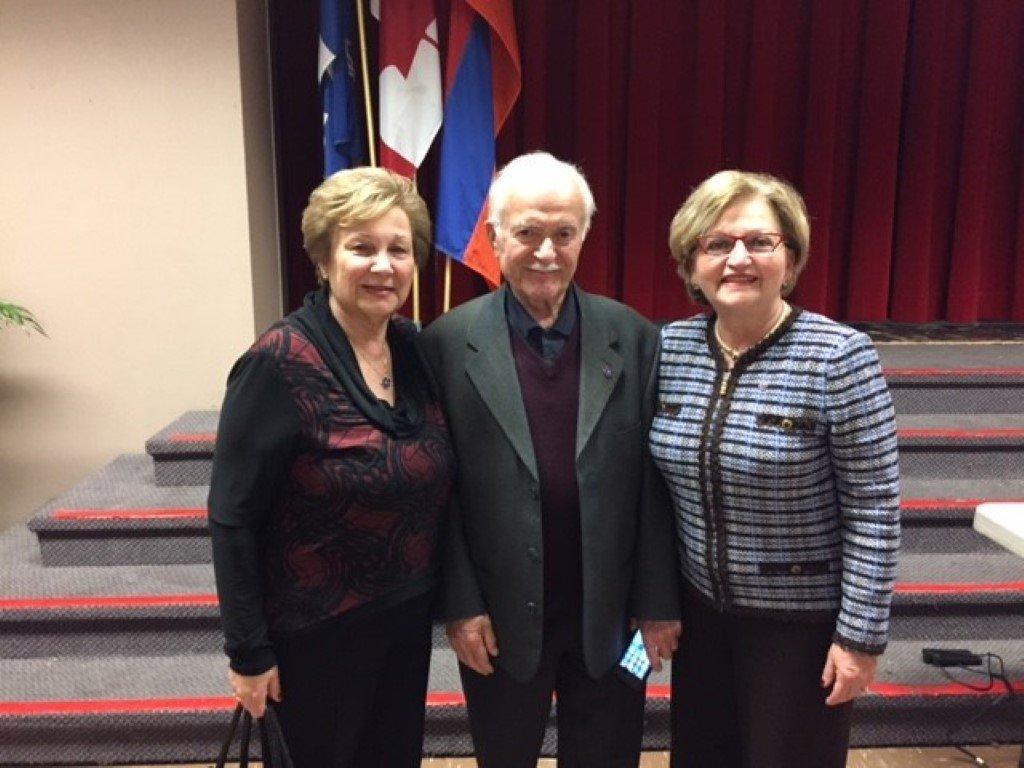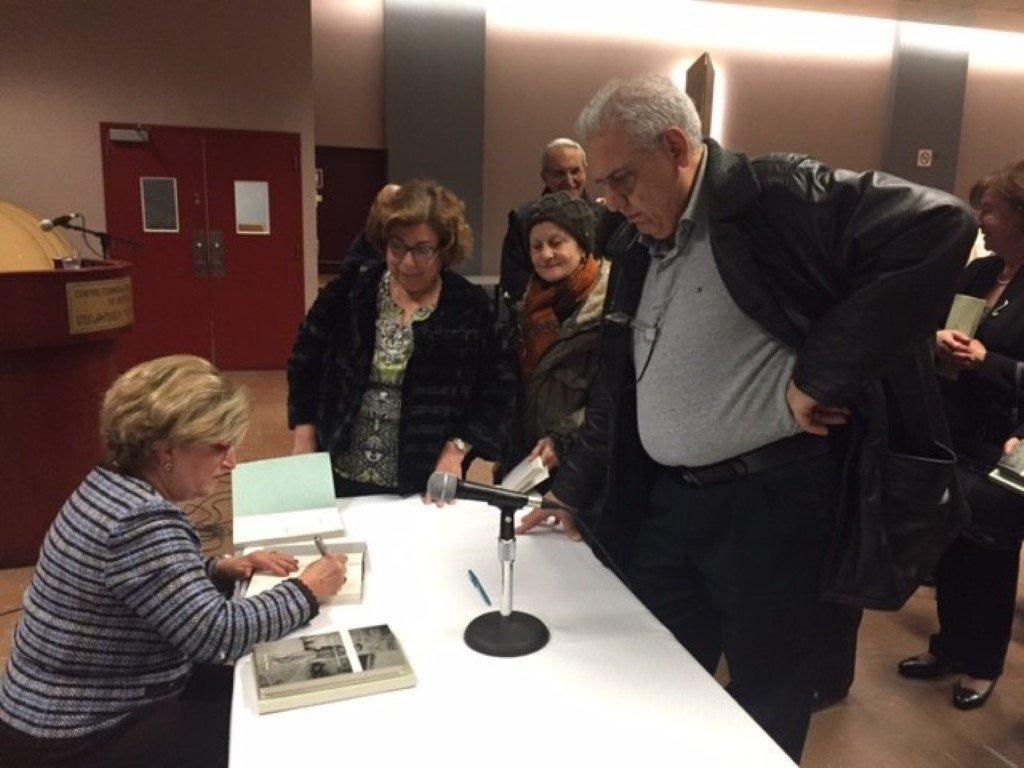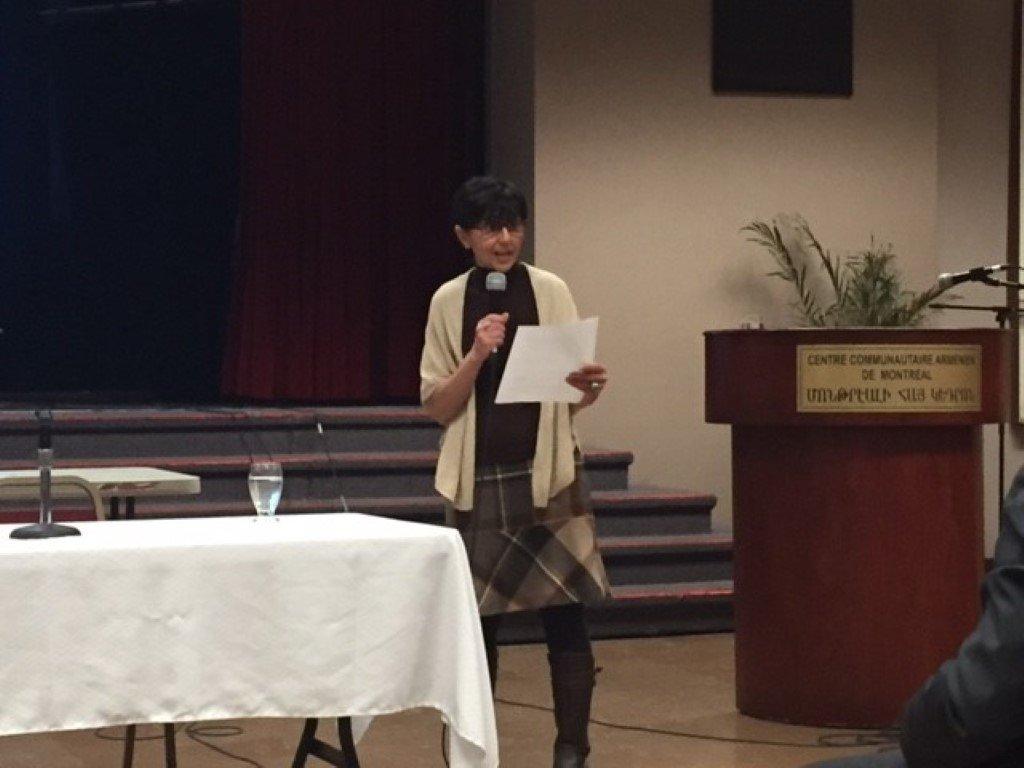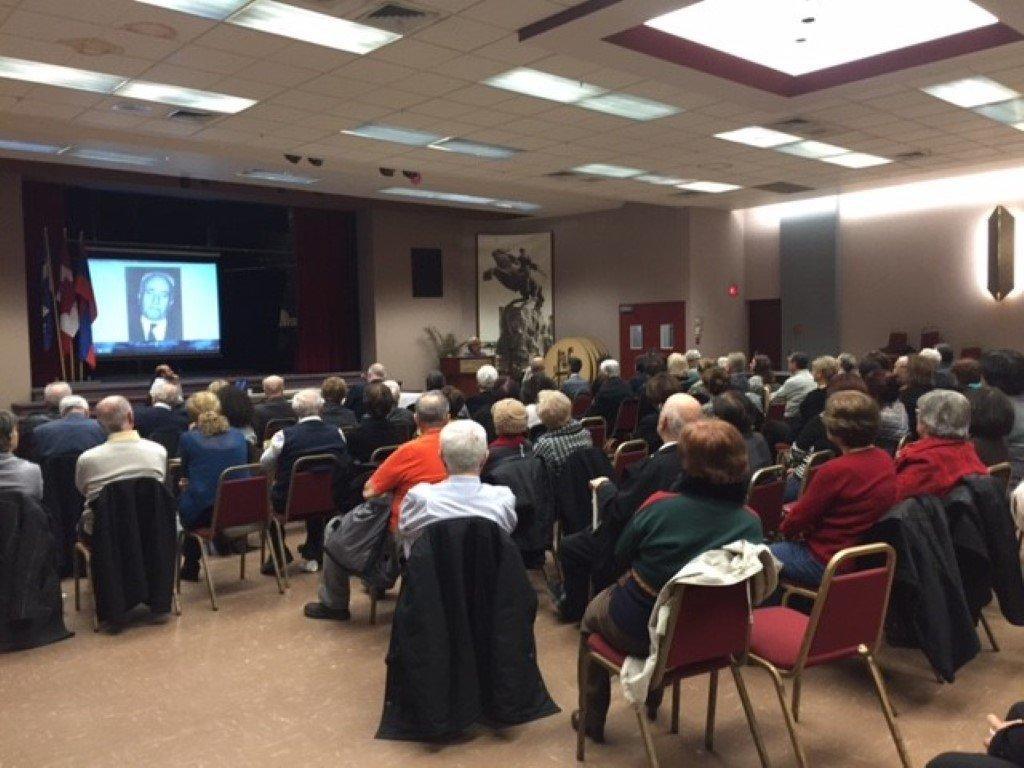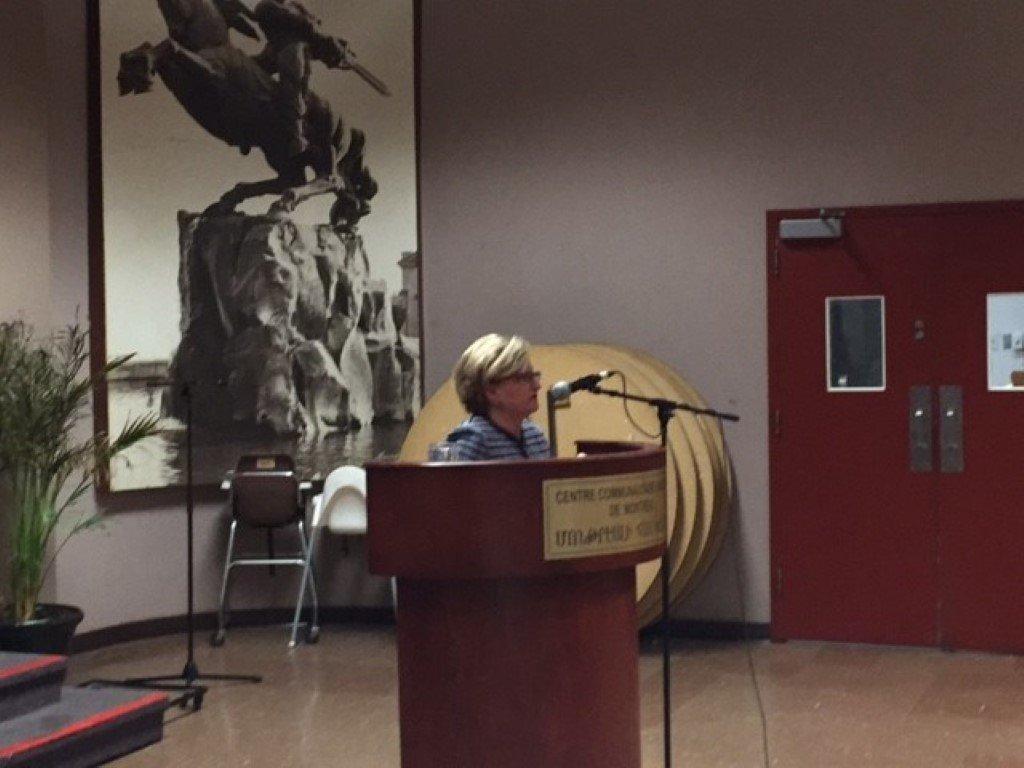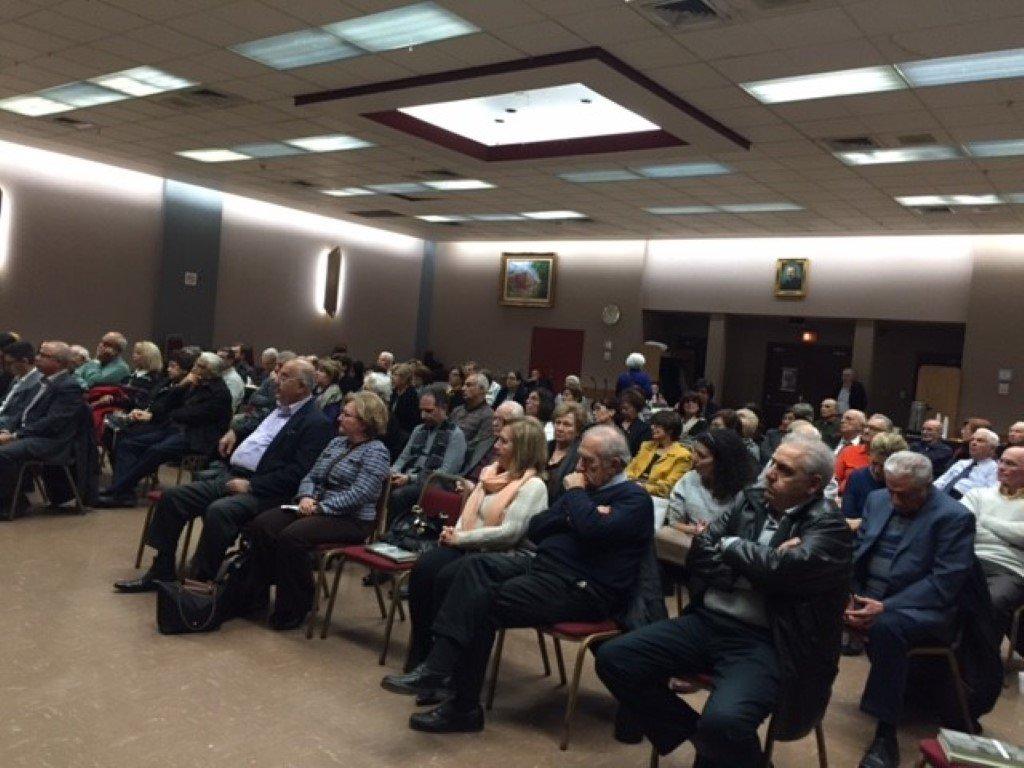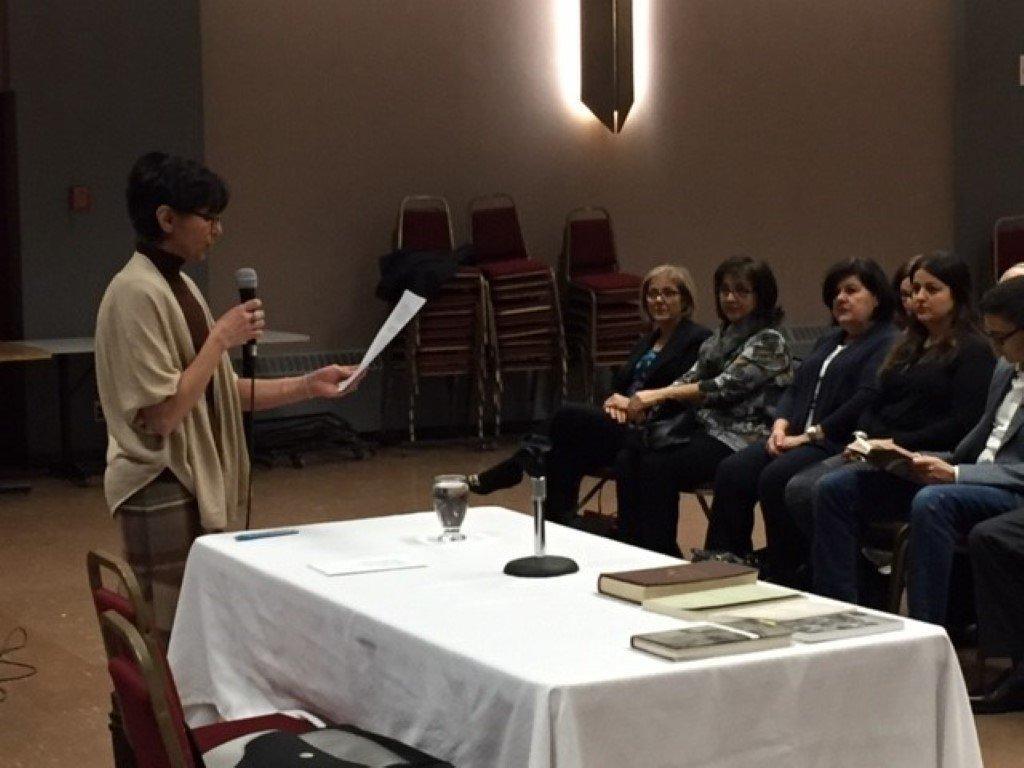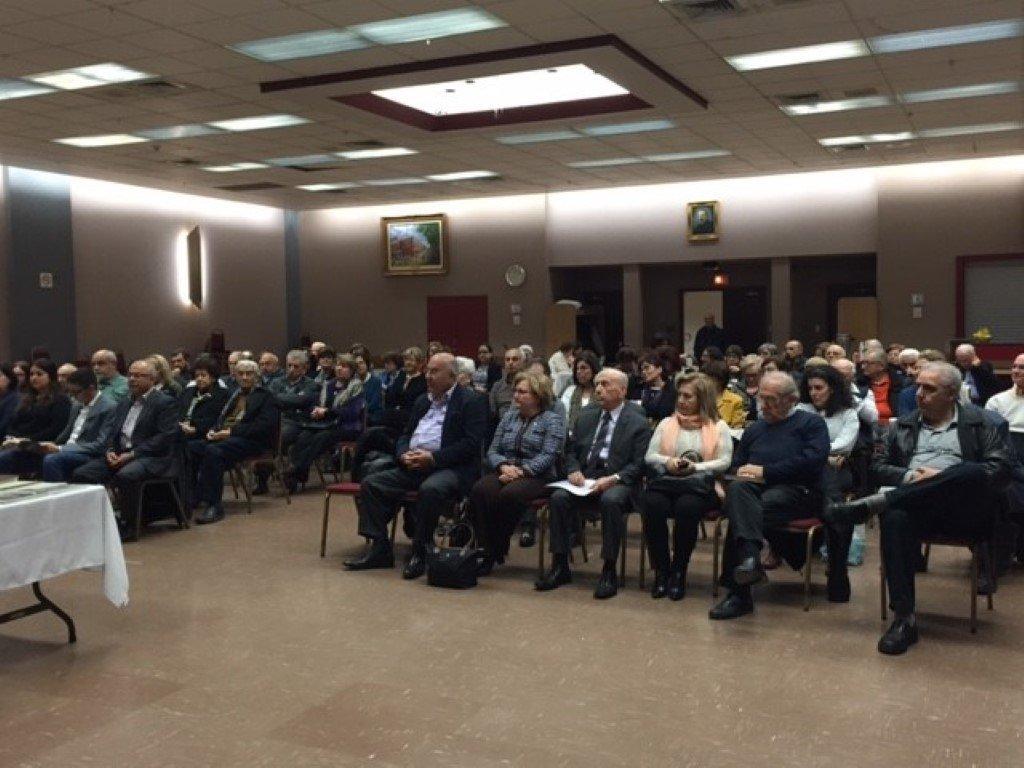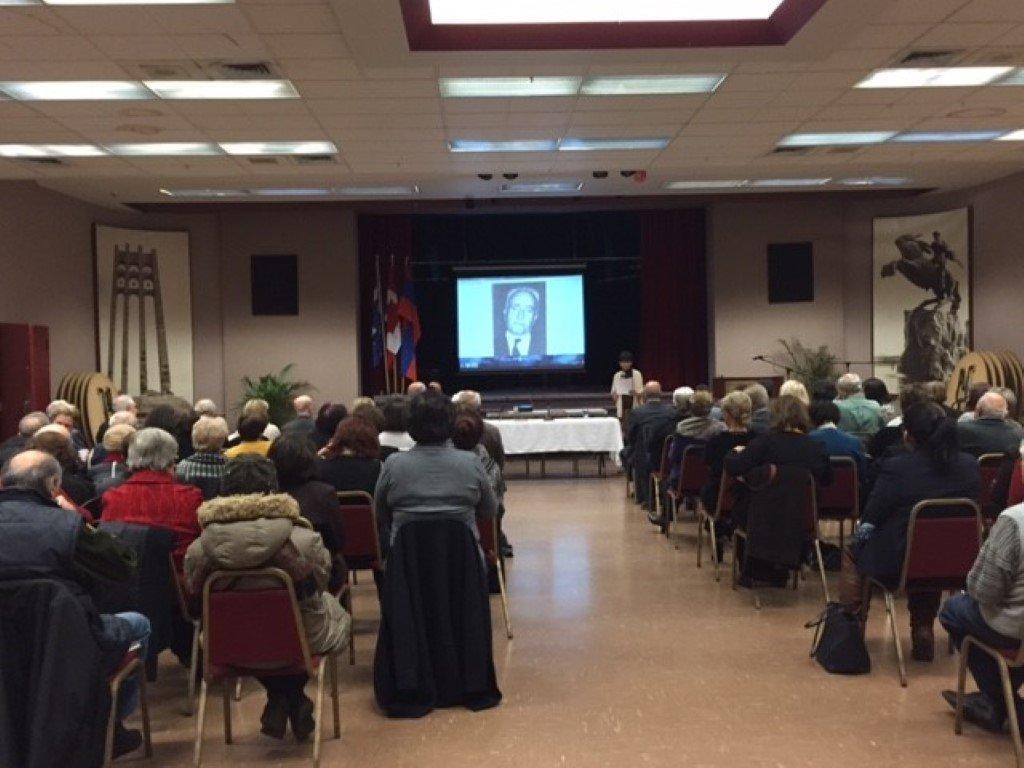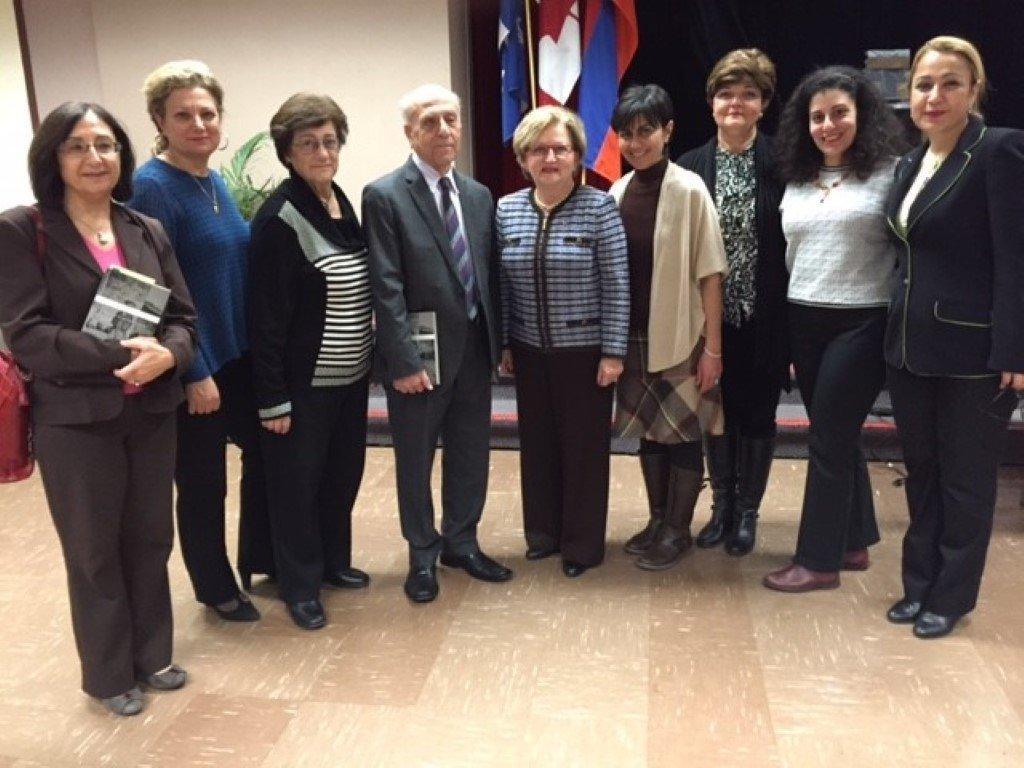
On Wednesday, 18 November 2015, at 8 pm, a hundred of book-lovers attended the presentation of Karnig Panian’s book "Goodbye Antoura" at Aharonian Hall of the Armenian Center. The organizers of the event were the Tekeyan Cultural Association, Union of Istanbul Armenians and the Literary Committee of "Sanahin" Chapter of Hamazkayin.
Anahit Balian made the opening speech of the event. After welcoming the guests, she said that the book "Goodbye Antoura" reveals one of the tragic faces of the Genocide, which the reader knows partially.
"Goodbye Antoura" is the translated version of Karnig Panian’s "Memories of Childhood and Orphanage", which describes the Genocide survivor author’s childhood and adolescence.
The book has been translated by Simon Beudjekian who has settled in California from Lebanon. The audience listened to his videotaped speech where the translator said that the book is about young children, who didn’t completely understand the events occurring around them, but instinctively resisted when their identity appeared under threat. He added that such biographic books certainly play a significant role in foreign circles and contribute to the process of international condemnation of the Armenian Genocide.
Who was Karnig Panian?
He was born in 1910, in the Anatolian village of Gurin. When he was barely five years old, his family was subjected to exodus. He lost his mom, sister and brother on the way of deportation. However, he was rescued together with other Armenian orphans. They were taken to Antoura Orphanage where Jemal Pasha had organized the Turkification of 100.000 Armenian orphans. The boy underwent there all the difficulties of orphanage life. Then he was taken to the orphanage of Jbeil with his survived friends, where he received a sound national spirit education. Her life in the orphanage fortified his spirit of struggle and endurance, due to which he victoriously overcame the hardships of his life.
After the orphanage years, he entered life and became a craftsman. He worked in electrical business. Later, feeling endless desire for learning, he managed to enter the seminary and left his job. It was in 1930. After five years, in June 8, 1935, he was among the first eight graduates of Jemaran. Later, the life took him to the world of learning, tuition, books and literature. He got married and had two children, Houri and Shaghik.
He was known as a teacher of the Armenian language and Armenian studies in Jemaran or elsewhere. He was the Vice Principal of Jemaran at the time when Levon Shant was the Principal. At the time of Simon Vratsian, he was the Assistant Director together with Mushegh Ishkhan.
In 1936, together with his graduate friends, Karnig Panian established the Alumni Association of Jemaran. Since1944, he was the founder member of the Alumni official "Agos" and its editor.
Karnig Panian was a permanent and active member of Hamazkayin, he was either a simple member or Board member, secretary or an administrative clerk. At his teenage years, he was already ARF member and hold responsible positions there. He worked for different national agencies, particularly as a member and chair of the National Council. He also was National MP and one of the prominent political figures of the political and provincial Assemblies. In 1970, Khoren I Catholicos awarded him the "Mesrop Mashtots" medal for his long-term educational, cultural and national activities.
Teacher, intellectual and public figure, Karnig Panian humbly served his nation all his life. He really deserves admiration for his diligent and disciplined work. His entire life was a dedication to his nation, Armenian language, Jemaran, Hamazkayin Society and to the figures of theArmenian Culture. He died in July 23, 1989.
Then, Anahit Balian invited Ms. Silva Amatuni from Tekeyan Cultural Society to present Dr. Garbis Harboyan’s biography and to invite him to present the book "Memories of Childhood and Orphanage".
Dr. Harboyan scrupulously introduced the author's life, his sufferings on the road of exodus, where he lost his family members and tasted lots of hardships, the hellish life of Antoura Orphanage, the Turkification of orphans, hunger and sufferings. From time to time, the speaker read extracts from the book, and simultaneously presented some subject-related slides on the screen.
After presenting Karnig Panian’s incredibly thrilling and tragic life, Anahit Balian said, "Despite all those sufferings, Armenian people exists and will certainly exist ever after. Our slogan is - we remember and claim".
Then she continued her speech noting that Armenians greatly contributed to ceremonies dedicated to the Centennial of the Armenian Genocide working in the spheres of politics, propaganda, public, as well as in publishing sphere. The Armenian artists were also involved in those activities.
Then, a very interesting videotape was presented to the audience, where an artist (unfortunately, we were unable to find out her name) was making different images with her fingers and sand under the music of Gomidas. At the end of this interesting presentation, she wrote, "We remember 1915 Genocide."
Then, Silva Amatuni presented the author's daughter Houri Panian who had been the principal of St. Stephen's College in Boston for 27 years, and had made great efforts to enlarge the college and to enhance its quality. Aram I Catholicos awarded her the "Mesrop Mashtots" medal and the National Prelacy awarded her the "Queen Zabel" medal.
Houri Banian thanked the three associations, which organized the presentation of her father’s book. She also explained why she had organized the translation of the book, and how her family and the diaspora accepted her initiative. She spoke about the publishing house of Stanford University, which had published the book. The introduction and epilogue were written by Prof. Keith Watenpaugh, a lecturer from the Human Rights Department of University of California in Davis, the students of which will study the book in the coming years.
Prof. Keith Watenpaug has welcomed Houri Panian’s initiative concerning the translation of the book "Goodbye Antoura", saying that it is not only a literary value but also a human rights documentary discussing issues concerning humanity, such as identity, violation of children's rights and post-genocide repairs.
Houri Panian also told how impressed she had been after visiting St. Jacob College that morning.
At the end of the event Anahit Balian concluded her speech saying, "This book reminds the world that no historic truth can be buried even after 100 years. The survival instinct and love for life helped those orphans to find ways to survive, overcome hunger and unimaginable sufferings and the same survival instinct and the will to fight against injustice have united us all now and encourage us to remind the world about the realities of the past and be more organized, more vigilant and cautious today and in the coming years."
Toward the end, each participant left taking a books signed by Houri Panian as averment of sympathy towards those orphans and their painful fate and averment of will to renew the struggle for justice.
Executive Board of "Sanahin" Chapter

